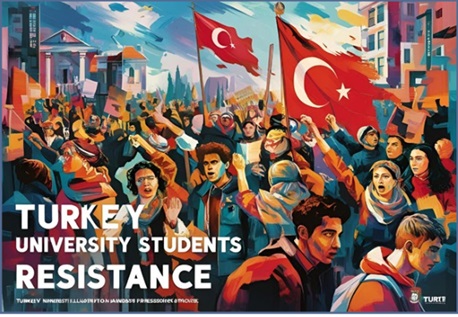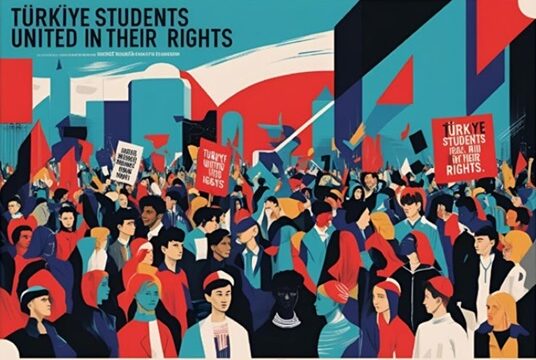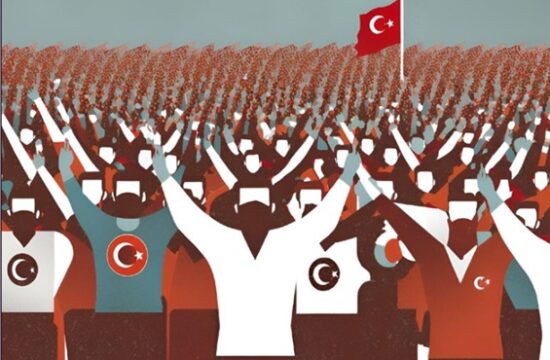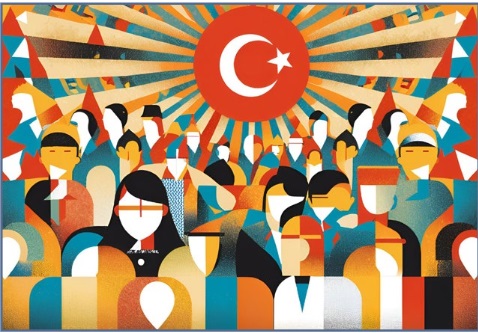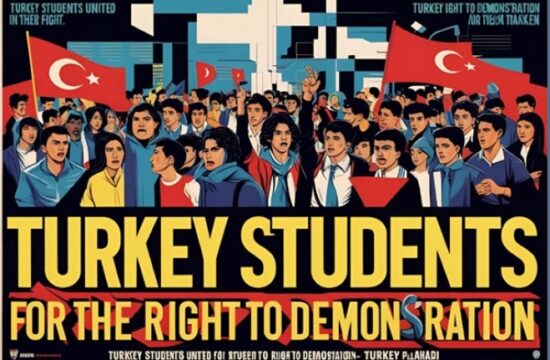A STUDENT University of HACETTEPE
picture source: Created with AI
The protests that began on March 19, 2025, in Türkiye are being attributed to the unlawful arrest and detainment of İstanbul’s elected mayor and the opposition’s next presidential candidate, Ekrem İmamoğlu. The way the media frames it reveals a deliberate attempt to divide the country into political camps—portraying the protests as some radical leftist uprising. But what sets the March 19 protests apart from those that came before—most notably the 2013 Gezi Park protests—is that this time, they are uniting the people, not splitting them further.
Today’s Türkiye is experiencing an intellectual decline unprecedented in its history. Not in terms of literacy rates—but in something deeper, more dangerous. Knowledge is no longer sought after. We hear something on social media, on television, or in the news, and we accept it without question. Even if it contradicts itself or yesterday’s truth, we accept it. There is no verification, no investigation. We’ve developed a kind of intellectual laziness: we want to be fed, not to forage. It is stripping our society of its humanity. Our instinct to question, to challenge, to think critically, is fading. We no longer want to learn. We only want to know. In many ways, today’s
Türkiye is an embodiment of Newton’s law of inertia: We resist change. We’ve become too comfortable in our of suffering. The idea of sacrificing that comfort is something that terrifies us more than the suffering itself.
Everything our ancestors fought and died for is being sold off without even the pretense of compensation to those who rightfully own this history: the people. We could change course if we wanted to- but change doesn’t come easy. It demands discomfort. It demands sacrifice.
Our government knows the best ways to exploit our greed for rapid fire answers to all our problems without an ounce of effort. After two decades in power, they have perfected their methods. Their favorite weapons being the expropriation of religion, and fear.
Fear is how authoritarian governments control the crowd. For years, it has kept us in check. Fear of losing our future, not being able to get a job to support our families, fear of walking freely in the streets of our own country. But now, that fear has become our everyday lives, and the façade is starting to crack. Gen-Z is a generation born into this fear, there has never been a life without it. Unemployment is off the charts, the job market is scarce and extremely biased, minimum wage jobs that don’t even cover rent provide nothing but the worst working conditions for their employees. As for the safety of our women on the streets-has that ever existed? We’ve come to realize that things can’t get much worse. And when there is no future to protect, people become bolder about
risking the present. It should come as no surprise, then, that student-based organizaitons are on the frontlines of justice and reform – just as they have been throughout history. Education is often the first casualty when fascism rises. These governments seek to con-
trol knowledge, their biggest threat, the most. And they are not afraid to declare students—children—as enemies of the state.
But that’s exactly what they are: children. Despite the government’s re- lentless efforts to alienate them from society, these are our classmates, our future colleagues, our neighbors’ sons and daughters. And they are being unlawfully detained, silenced and brutalized by government forces for simply demanding a better future, for using their rights. Harassment, torture, deliberate witholding of life-saving medication- it’s all happening in plain sight. A generation is bing systematically murdered, denied of a future they can look forward to, by a government that can’t seem to accept disagreement with their spoiled morals.
A recent read of mine is Han Kang’s Human Acts. A haunting, raw and real depiction of student uprisings in Gwangju, South Korea in May of 1980. If you have the time, you should read it. And if it feels too familiar—if it hits too close to home—perhaps that’s because our realities are not so different. Perhaps the signs of fascism, authoritarianism and dictatorship are universal, and perhaps we’ve been too happily blind until it started bordering on too late.





